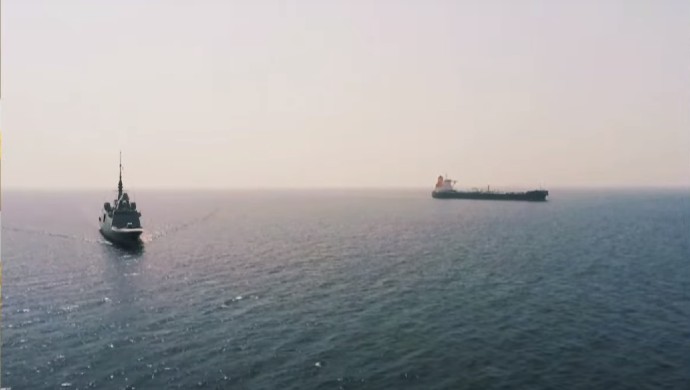Since the beginning of the war in Gaza, Iran’s regime has been doing what it always does: try to project power through the export of terrorism. At the same time, the regime tries to create the impression that a firm reaction to Tehran’s belligerent behavior will lead to a disastrous war and thus force the West to accept it as a power broker in the region and provide it with concessions.
But the reality is that Iran’s regime neither has the capacity nor the will to go on a war with the West, which is why in fact why it is throwing its proxies under the bus and sending them to cause mayhem on its behalf.
In an article, the National Council of Resistance of Iran (NCRI) warns that appeasing the regime “begets more terrorism and will have disastrous consequences as the regime will perceive it as weakness and will escalate its destructive behavior.” On the contrary, the history of the regime shows that a firm policy is “a strategic imperative in quelling Tehran’s aggression.”
Why Iran’s regime exports terrorism
Since its founding in 1979, the mullahs’ regime has shaped its policy around the goal of maintaining its hold on power at all costs. This policy rests on two pillars: domestic suppression and foreign terrorism.
The regime’s main worry is the Iranian people, who long for regime change and the establishment of a democratic republic and continue to express their desires through round after round of nationwide uprisings. To suppress these growing tides of dissent, the regime needs to foment war and mayhem in the region. This is why it has invested so much time and energy into creating a network of terrorist proxy groups in the region.
“Tehran firmly believes that suppressing domestic dissent becomes more manageable when attributed to a foreign enemy,” the NCRI writes.
Therefore, while the regime tries to project a powerful image through its support for the Houthis, Hezbollah, Hashd al-Shabi, and other terrorist groups in the region, its real fear is the dissenting Iranian population at home.
Regime supreme leader Ali Khamenei has said on multiple occasions, “If we don’t confront the enemy beyond our borders, we will inevitably face them within our own cities.”
The enemy he refers to, of course, is the people of Iran and their organized resistance movement. As it did during the eight-year Iran-Iraq war, the regime continues to suppress dissidents on the grounds of supporting fictitious foreign enemies.
Why Iran’s regime won’t directly go to war
After the October 7 attacks against Israel, Iranian officials have been flip-flopping in their statements, trying to take credit for the attack while at the same time denying any involvement.
On October 13, Khamenei said, “We certainly defend Palestine and its struggles. However, those who claim that the actions of Palestinians are the result of non-Palestinians do not recognize the Palestinian nation; they have at least misunderstood the Palestinian nation; their mistake lies right here; they are making a wrong calculation.”
Then on December 27, following the killing of a senior IRGC commander in Syria, the spokesperson of the IRGC declared that the October 7 attacks was a “severe revenge” for the killing of Qasem Soleimani. These statements were promptly refuted by other senior IRGC officials.
Despite its menacing rhetoric and threats to exact revenge against other states, Iran’s regime is carefully avoiding any kind of move that will put it in direct confrontation with Western states. It has refused to retaliate against the killing of its high-ranking officials and officers who are involved in its terrorist intervention in the region.
The regime knows that it doesn’t have the military capacity to engage in any direct war. But more importantly, since its security forces are stretched thin to control the explosive state of the society, it knows that any direct confrontation will weaken its hold on power at home. Consequently, the Iranian people will gain the upper hand in their struggle against the regime.
Decisiveness works
Through a dual strategy of fomenting instability and selling its powerplay through its lobbies, the regime has managed to push western states to prefer to deal with it through concessions and appeasement. “However, in rare instances where resolute action has been taken against Tehran’s provocations, it has not resulted in war but rather forced the regime to back down and recalibrate its approach,” the NCRI writes.
The most recent instance is the killing the regime’s terror master mind, Qassem Soleimani, the commander in chief of the IRGC Quds Force. After Soleimani was killed in a U.S. strike in Iraq, the regime vowed revenge while its lobbies abroad warned an imminent regional war. But in effect it toned down its terrorist activities, knowing that it would have consequences.
“This pattern of behavior suggests that the Iranian regime is unwilling to risk a direct confrontation with the US military or other Western nations,” the NCRI writes. “It also shows that the regime only understands the language of force and will back down when faced with a decisive and firm policy.”
Contrary to what the regime has tried to portray, decisiveness actually works. The ultimate balance of power will be determined in the struggle between the regime and its main foe, the people of Iran and their resistance movement.
“It is crucial to recognize that Tehran’s aggressive actions stem from a survival strategy deeply rooted in internal vulnerabilities rather than a quest for global dominance through regional warfare,” the NCRI writes. “The cyclical nature of Tehran’s behavior underscores the need for a more nuanced and comprehensive policy in the West.”





